Related Research Articles
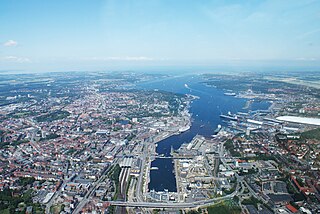
Kiel is the capital and most populous city in the northern German state of Schleswig-Holstein, with a population of 246,243 (2021).
The Helmholtz Association of German Research Centres is the largest scientific organisation in Germany. It is a union of 18 scientific-technical and biological-medical research centers. The official mission of the Association is "solving the grand challenges of science, society and industry". Scientists at Helmholtz therefore focus research on complex systems which affect human life and the environment. The namesake of the association is the German physiologist and physicist Hermann von Helmholtz.

Gotthilf Hempel is a German marine biologist and oceanographer.

The Federal Ministry of Food and Agriculture, abbreviated BMEL, is a cabinet-level ministry of the Federal Republic of Germany. Its primary headquarters are located in Bonn with a secondary office in Berlin. From 1949 to 2001 it was known as the Ministry for Food, Agriculture and Forests. Through an organizational order by the German Chancellor on 22 January 2001, it became the Federal Ministry for Consumer Protection, Food and Agriculture after the Consumer protection function was transferred from the Federal Ministry for Health. The name Federal Ministry for Food, Agriculture and Consumer Protection was adopted on 22 November 2005 simply to alphabetize its functional parts in the German language. Due to the political restructurings of the 18th German Bundestag in December 2013 the division "Consumer Protection" was transferred to the Federal Ministry of Justice and Consumer Protection.

The Gottfried Wilhelm Leibniz Prize, or Leibniz Prize, is awarded by the German Research Foundation to "exceptional scientists and academics for their outstanding achievements in the field of research". Since 1986, up to ten prizes have been awarded annually to individuals or research groups working at a research institution in Germany or at a German research institution abroad. It is considered the most important research award in Germany.
Ernst M. E. Ehrenbaum was a German biologist and oceanographer.
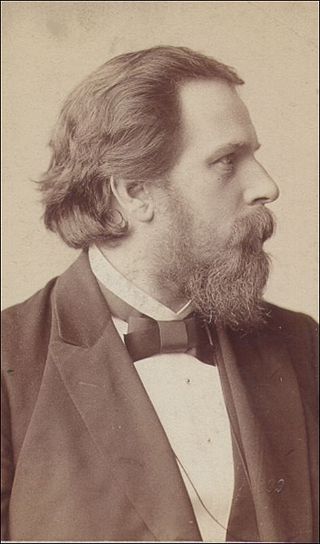
Max Rubner was a German physiologist and hygienist.

The Karlsruhe Institute of Technology is a public research university in Karlsruhe, Baden-Württemberg, Germany. The institute is a national research center of the Helmholtz Association.

The Max Planck Institute of Molecular Physiology is located in Dortmund, next to the Technical University of Dortmund. It is one of 80 institutes in the Max Planck Society.

The Kiel Institute for the World Economy is an independent, non-profit economic research institute and think tank based in Kiel, Germany. In 2017, it was ranked as one of the top 50 most influential think tanks in the world and was also ranked in the top 15 in the world for economic policy specifically. German business newspaper, Handelsblatt, referred to the institute as "Germany's most influential economic think tank", while Die Welt, stated that "The best economists in the world are in Kiel".

Wilbur Olin Atwater was an American chemist known for his studies of human nutrition and metabolism, and is considered the father of modern nutrition research and education. He is credited with developing the Atwater system, which laid the groundwork for nutrition science in the United States and inspired modern Olympic nutrition.
The online portal Greenpilot is a service provided by the German National Library of Medicine, ZB MED.

The German Federal Institute for Risk Assessment, abbreviated BfR, is a body under public law of the German federal government with full legal capacity. The institute comes under the portfolio of the Federal Ministry of Food and Agriculture and has the task of providing scientific advice to the federal government on issues relating to food safety, product safety, chemical safety, contaminants in the food chain, animal protection and consumer health protection. Further technical supervision is performed by the Federal Ministry for the Environment, Nature Conservation, Building and Nuclear Safety and the Federal Ministry of Transport.
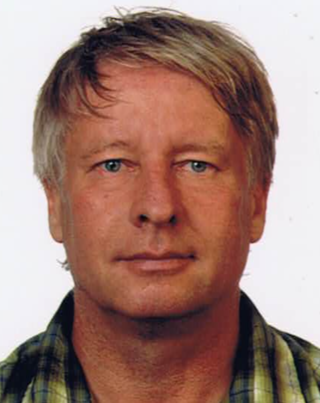
Gerold Rahmann is a German agricultural economist.

The Max-Reger-Institute (MRI) is a musicological research institute and archive in Karlsruhe, Germany, dedicated to the work of the composer Max Reger, a representative of German music around the turn of the 20th century. An associated foundation, the Elsa-Reger-Stiftung, is named after his wife, Elsa Reger, who founded the foundation and the institute. It has a substantial archive of manuscripts and documents related to Reger.
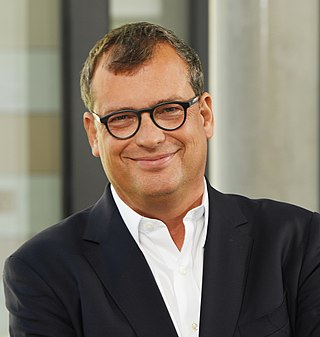
Gerald H. Haug is a German geologic climatologist, prize winner of the Gottfried Wilhelm Leibniz Prize and since 2007 he has a professorship at the ETH Zürich in Switzerland. In 2015 he became director of the Climate Geochemistry Department and Scientific Member at the Max Planck Institute for Chemistry in Mainz and since March 2020, he became the new President of the National Academy of Sciences Leopoldina.
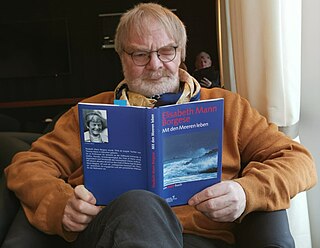
Ewald Schnug is a German agricultural scientist, university lecturer and researcher specializing in plant nutrition and soil science.
References
- ↑ "Über die Person Max Rubner". mri.bund.de. Retrieved 2017-02-24.
- ↑ "Max Rubner-Institut unter neuer Leitung". mri.bund.de. Retrieved 2017-06-15.
- ↑ "Das Max Rubner-Institut". mri.bund.de. Retrieved 2022-09-01.